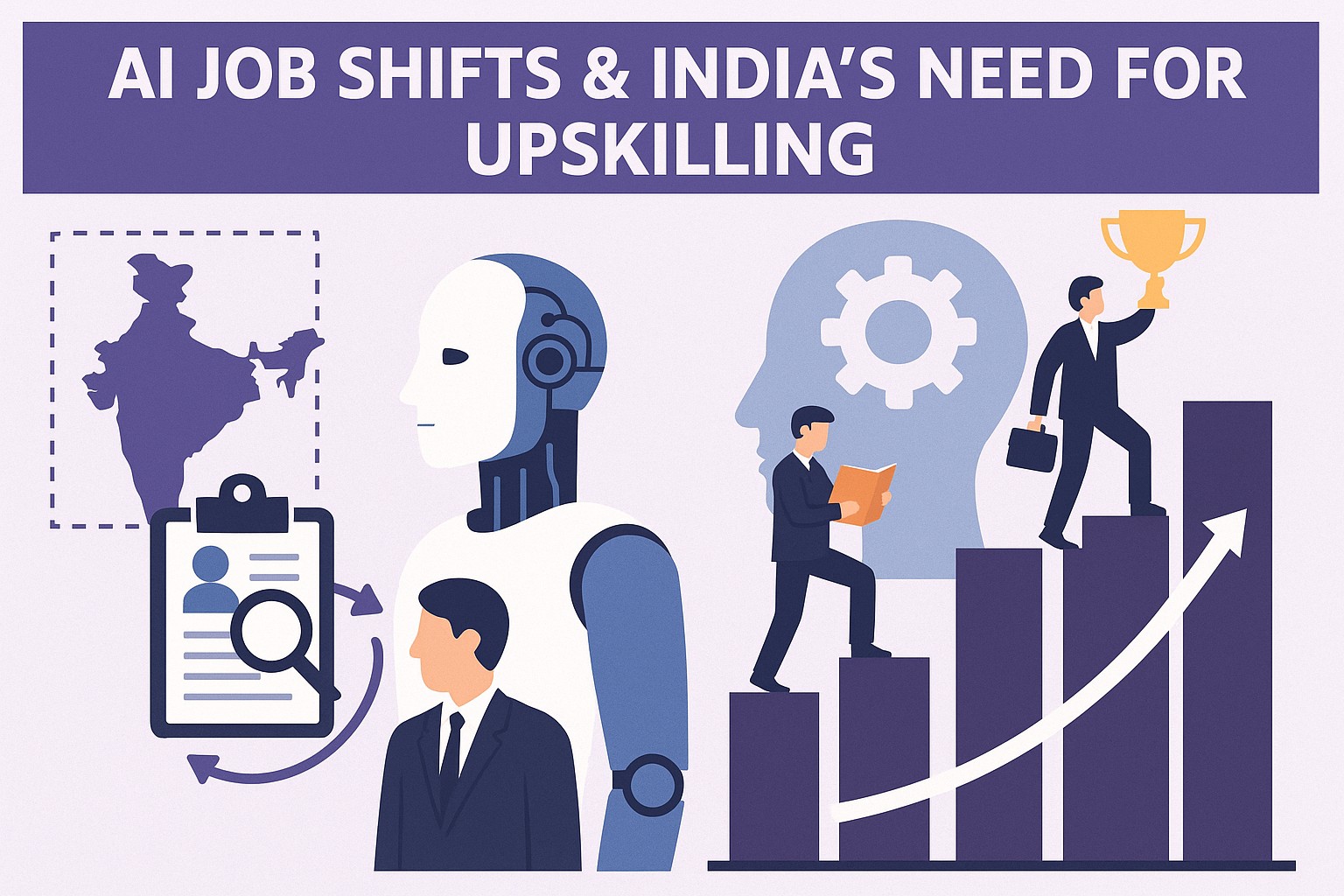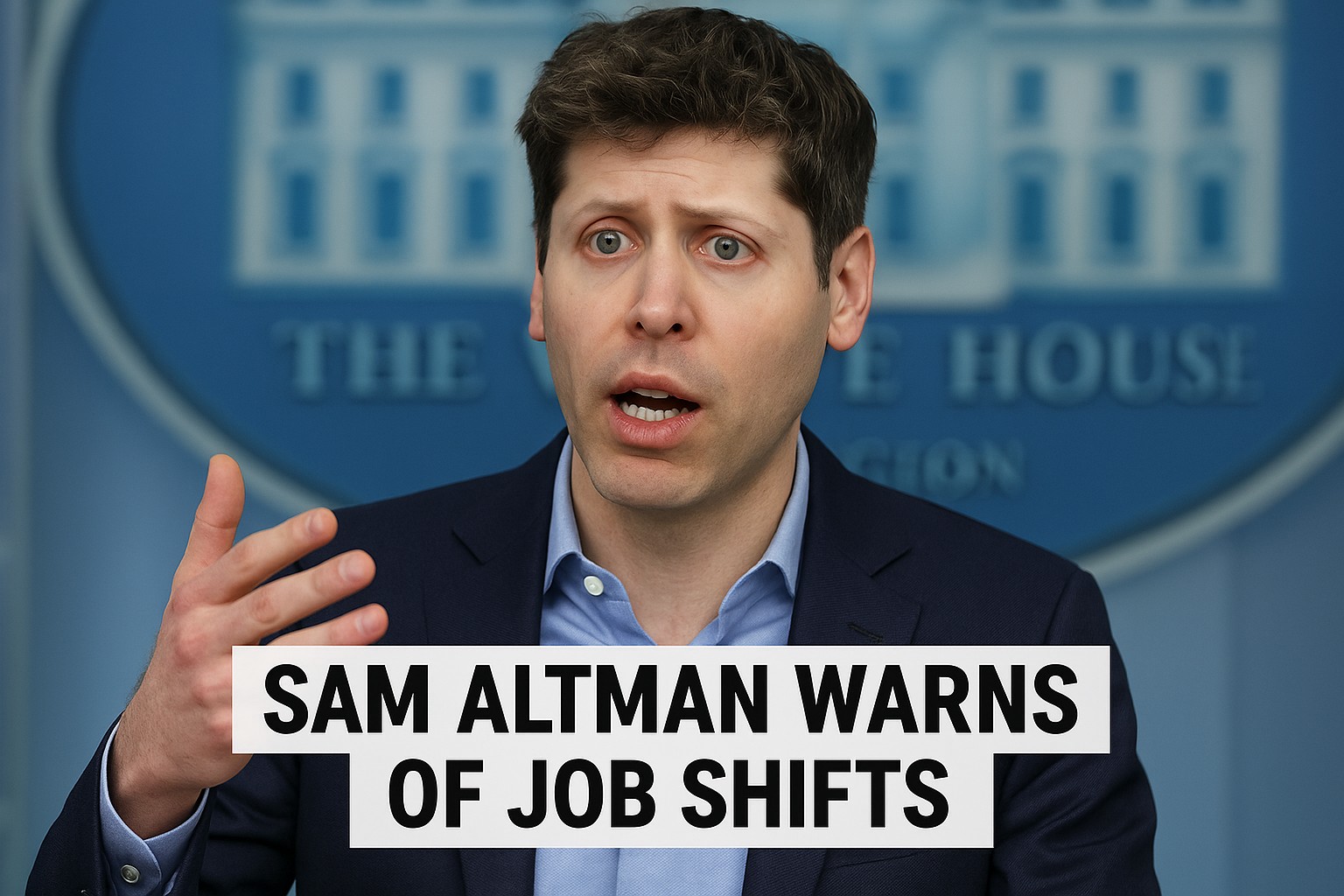Artificial intelligence (AI) is revolutionizing industries worldwide, and its impact on jobs is undeniable. OpenAI CEO Sam Altman has been vocal about the profound shifts that AI will bring to the workforce. According to Altman, many traditional jobs are at risk of disappearing as AI-powered tools become more capable of performing tasks that were once carried out by humans. This transformation poses challenges and opportunities for both the U.S. and Indian job markets, with India facing the dual challenge of adapting quickly to these changes and ensuring its workforce is prepared for the new AI jobs of the future.
AI Jobs and Traditional Roles at Risk
Altman’s predictions about the future of work are based on the growing capabilities of AI systems. From customer support to data analysis, AI is rapidly moving into fields that were previously dominated by human labor. For example, AI-driven tools, such as those used in customer service, are already outperforming human workers in several areas. A recent study found that customer service representatives who used AI assistants were able to boost productivity by 14%, with less experienced workers seeing a 34% increase in output. This highlights the efficiency that AI can bring to sectors that traditionally relied heavily on human labor.
Sam Altman has stated that within five years, many entry-level office jobs, such as data entry and administrative roles, could be fully automated. This transformation is driven by advancements in machine learning and natural language processing, which enable AI systems to handle tasks that require human-like judgment and reasoning. As a result, the rise of AI jobs will likely displace a significant portion of the current workforce in administrative and customer-facing positions. ( Source)
The Need for AI Upskilling in India
India, with its large and diverse workforce, faces a unique challenge in adapting to the rise of AI jobs. A recent report from Google.org and the Asian Development Bank stressed the urgent need for India to invest in upskilling initiatives to keep up with the AI-driven economy. The report suggests that India must act quickly to equip its workforce with the necessary skills to thrive in an AI-powered world, or it risks falling behind other nations that are investing heavily in AI education and training.
As AI continues to disrupt industries, India must focus on training workers not only in technical skills but also in areas where AI may struggle, such as creativity, emotional intelligence, and complex problem-solving. These are the types of skills that will continue to be in high demand in the future, as AI is unlikely to replace human creativity and interpersonal skills anytime soon. India’s workforce needs to be prepared to embrace AI jobs that require human input for tasks that AI cannot easily replicate.
The Importance of AI Job Readiness for the Future
India’s Skill India initiative, designed to provide vocational training and upskilling to millions of workers, will play a crucial role in preparing the country for the AI jobs of the future. However, experts warn that the pace of upskilling must accelerate. With AI advancing at a rapid pace, many existing roles will soon require more advanced technical skills or may be completely replaced by automation.
To address this gap, India must focus on both improving access to education and increasing the adoption of AI-focused training programs. Many global companies are already investing in AI research and development, which means that workers with a strong understanding of AI will be in high demand. Without the proper upskilling initiatives, India risks missing out on these opportunities and could see significant job displacement.
A Global Perspective: Adapting to the Rise of AI Jobs
The rise of AI jobs is not unique to India; the global workforce is also undergoing a major transformation. In the U.S. and other developed economies, AI is already making inroads into various sectors, from manufacturing to healthcare. As a result, workers are increasingly being pushed to adapt to new technological tools that can enhance their productivity. However, the key difference in India’s case is the sheer size of its workforce and the need to address skill gaps in rural areas, where access to training may be limited.
The global trend indicates that workers in fields such as education, healthcare, and customer service will increasingly need to collaborate with AI systems rather than being replaced by them. For example, AI-powered assistants can help teachers manage administrative tasks, allowing them to focus on personalized teaching. In healthcare, AI is helping doctors make more accurate diagnoses and treatment plans.
Conclusion: Preparing for AI Jobs in India and Beyond
As AI continues to reshape industries, both individuals and governments must act swiftly to ensure the workforce is prepared for the future. In India, where a large proportion of the population is still dependent on traditional jobs, upskilling initiatives are vital to ensure that workers are ready for AI jobs. By focusing on skill development in areas like AI, data analytics, and emotional intelligence, India can create a workforce that is equipped to thrive in an AI-driven world.
Sam Altman’s warning should serve as a wake-up call for both governments and workers worldwide. Embracing AI and ensuring workers are properly trained in relevant skills will be key to staying competitive in the evolving job market. The shift to AI jobs is inevitable, but the workforce that adapts will be the one that thrives in the coming decades.


